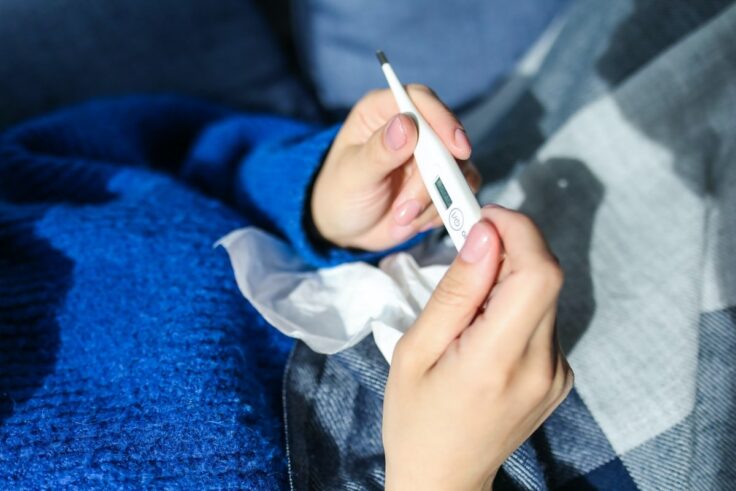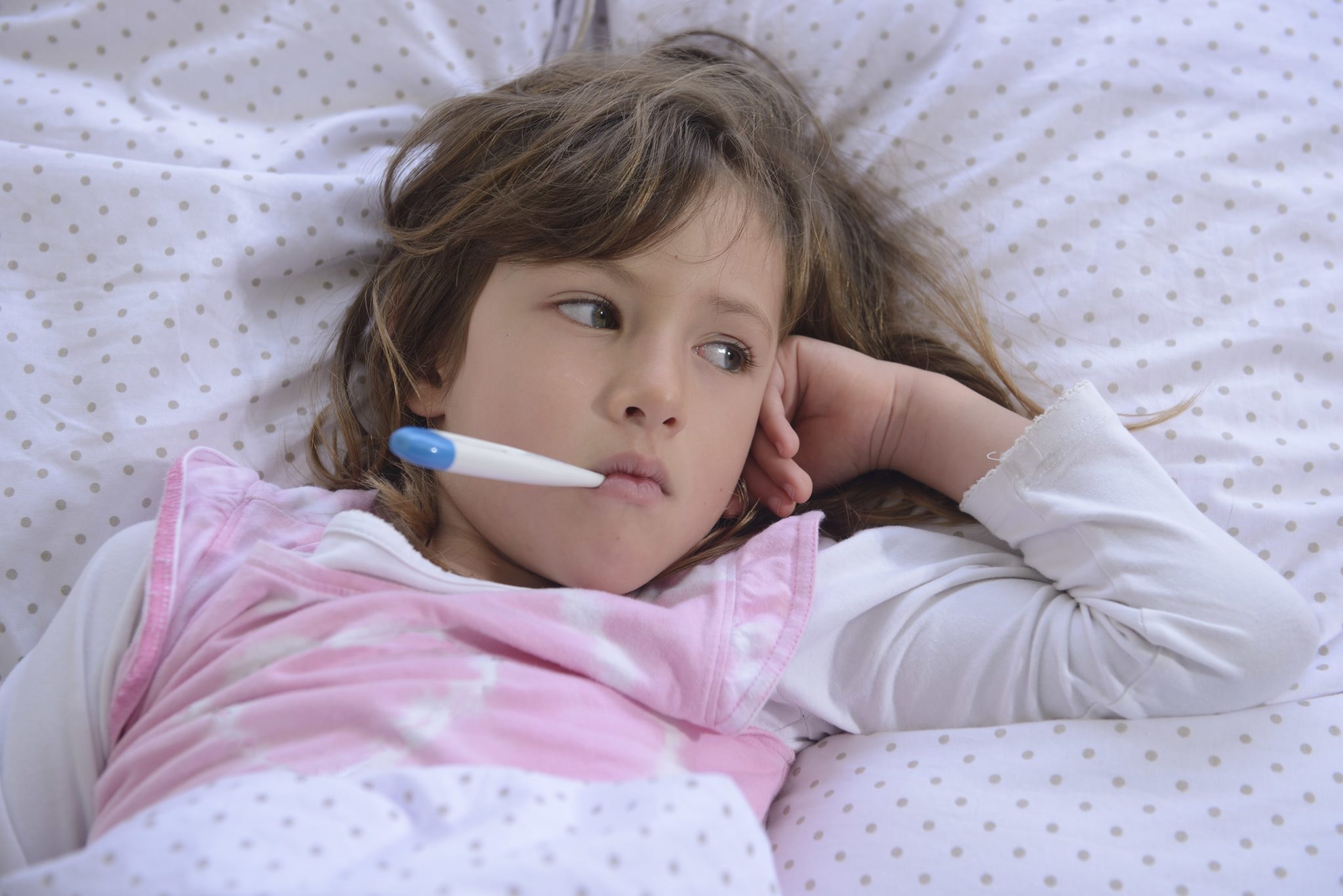When To Worry With Fever - If you're a parent or caregiver, it's likely that you might have encountered a fever in a child before. Fevers can be alarming, especially when they are in children or infants. The good news is that in most cases, a fever is not a serious health issue and can be treated at home. But when should you start to worry? In this post, we'll explore common causes of fever, symptoms to look out for, and when you should seek medical attention.
Common Causes Of Fever
1. Infections
If your child has a fever, chances are they have an infection. Infections can be caused by bacteria, viruses or fungi. Common infections in children include:
- Colds and flu
- Ear and throat infections
- Gastroenteritis (stomach flu)
- Urinary tract infections
- Meningitis (infection of the lining of the brain and spinal cord)
If your child has fever, it's important to monitor their symptoms carefully. If they have a mild fever and are otherwise healthy, you can treat them at home. However, if they have other symptoms such as difficulty breathing or a rash, you should seek medical attention immediately.
2. Teething
Teething can cause a low-grade fever in babies and toddlers. This is common and generally not a cause for concern. The fever should go away on its own and can be managed with acetaminophen or ibuprofen, under the direction of a healthcare provider.
3. Vaccinations
Some children may develop a fever after receiving a vaccination. This is a common side effect and is generally not a cause for concern. If your child develops a fever after a vaccination, you can treat it with acetaminophen or ibuprofen, under the direction of a healthcare provider.
Symptoms To Look Out For
When a child has a fever, it's important to watch for other symptoms that may indicate a more serious condition. These symptoms include:
- Difficulty breathing
- Rapid breathing
- Seizures
- Stiff neck
- Rash
- Extreme irritability
- Inability to keep fluids down
- Reduced urine output
- Confusion or disorientation
If your child has any of these symptoms, seek medical attention immediately.
When To Seek Medical Attention
If your child has a fever, it's generally safe to treat them at home with acetaminophen or ibuprofen. However, if your child has any of the following symptoms, seek medical attention immediately:
- High fever (defined as a temperature of 103 degrees Fahrenheit or higher)
- Fever that lasts longer than 72 hours
- Difficulty breathing or rapid breathing
- Seizures
- Stiff neck
- Rash
- Extreme irritability
- Inability to keep fluids down
- Reduced urine output
- Confusion or disorientation
How To Treat A Fever At Home
If your child has a fever, you can take steps to make them more comfortable, such as:
- Offering plenty of fluids to keep them hydrated
- Dressing them in light clothing to prevent overheating
- Giving them acetaminophen or ibuprofen, under the direction of a healthcare provider
- Using a cool washcloth or taking a lukewarm bath to help reduce their temperature
It's important to monitor your child's temperature and symptoms carefully. If your child's fever persists or worsens, seek medical attention.
Conclusion
In conclusion, a fever is a common occurrence in children and is generally not a cause for concern. Most fevers can be managed at home with acetaminophen or ibuprofen, under the direction of a healthcare provider. However, it's important to monitor your child's symptoms carefully and seek medical attention if you notice any signs of a more serious condition.

Additional Tips
- If your child has a fever, make sure they get plenty of rest and stay hydrated.
- Use a digital thermometer to measure your child's temperature accurately.
- If your child has a fever with no other symptoms, they may just need rest and fluids. In this case, you can treat them at home and monitor their symptoms carefully.
- If your child has a fever and is also experiencing other symptoms such as a headache or sore throat, you can offer them over-the-counter pain relievers like acetaminophen or ibuprofen, under the direction of a healthcare provider.

When To Worry About A Fever In Infants
Infants are at a higher risk for complications from fevers, so it's important to seek medical attention if your infant has a fever. If your infant is under 3 months old and has a temperature of 100.4 degrees Fahrenheit or higher, seek medical attention immediately. If your infant is between 3 months and 6 months old and has a temperature of 101 degrees Fahrenheit or higher, seek medical attention if the fever lasts for more than 24 hours or if your infant seems especially irritable or lethargic. If your infant is over 6 months old and has a temperature of 103 degrees Fahrenheit or higher, seek medical attention if the fever lasts for more than 72 hours or if your infant seems especially irritable or lethargic.
How To Take Your Infant's Temperature
The most accurate way to take your infant's temperature is with a digital thermometer. You can take your infant's temperature by:
- Rectal - this is the most accurate method for infants. Remember to use a separate thermometer for rectal temperature taking.
- Oral - this is not recommended for infants because they cannot hold the thermometer under their tongue.
- Axillary - this is the least accurate method.

When To Worry About A Fever In Older Children
Older children are less likely to experience complications from a fever, but it's still important to monitor their symptoms carefully. Seek medical attention if your child has a fever that lasts for more than 72 hours or if they have any of the following symptoms:
- Difficulty breathing or rapid breathing
- Seizures
- Stiff neck
- Extreme irritability
- Inability to keep fluids down
- Reduced urine output
- Confusion or disorientation
How To Take Your Child's Temperature
The most accurate way to take your child's temperature is with a digital thermometer. You can take your child's temperature by:
- Orally - this is the most convenient method for older children.
- Axillary - this is a less accurate method for older children.

When To Keep Your Child Home From School
If your child has a fever, it's important to keep them home from school or daycare to prevent the spread of illness to others. In general, keep your child home if they:
- Have a fever over 100 degrees Fahrenheit
- Have symptoms of illness such as cough, sore throat, or runny nose
- Have difficulty breathing or rapid breathing
- Are experiencing vomiting or diarrhea
- Are unable to participate in normal activities
When To Seek Emergency Medical Attention
If your child has any of the following symptoms, seek emergency medical attention:
- Difficulty breathing or rapid breathing
- Seizures
- Stiff neck
- Extreme irritability
Remember, if you are ever unsure or concerned about your child's health, seek medical attention.

Final Thoughts
A fever can be concerning, especially in children and infants. In most cases, a fever is not a serious health issue and can be treated at home. However, it's important to monitor your child's symptoms carefully and seek medical attention if you notice any signs of a more serious condition. Remember, fever is a natural response to infection and is an important part of the body's immune system. By staying informed and taking appropriate steps, you can help your child stay healthy and comfortable during times of illness.
Read more articles about When To Worry With Fever